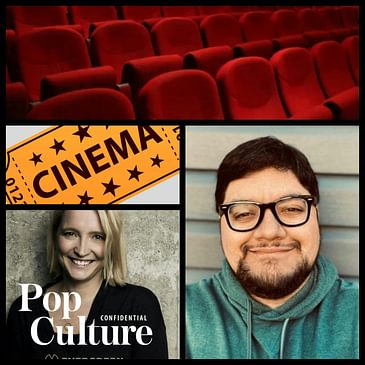Ryan McQuade (Executive Editor, AwardsWatch.com) joins Christina to discuss the reasons behind the low box office numbers this Memorial Day weekend (Furiosa and Garfield), the state of cinema & streaming, and looking forward to even more fantastic, original, risk-talking cinema ahead!
Learn more about your ad choices. Visit megaphone.fm/adchoices


